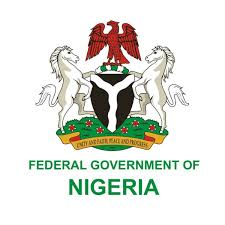He also praised the World Bank for helping the country’s economy by facilitating funds from various donors, particularly the European Union, to further improve the quality of the people’s governance.
Bagudu made this known in Abuja, when the World Bank Country Director, Mr. Shubham Chaudhuri, led a team on a courtesy visit to his office.
The minister listed the areas of support enjoyed by the Nigerian government from the World Bank over the years to include technical assistance, social and economic development, pipeline initiatives, microeconomic analysis, and international co-operation among others.
He stated that current measures being taken by President Bola Ahmed Tinubu’s administration to reposition the economy, will soon be appreciated by the masses when the reforms finally mature.
According to the minister, the Federal Government was already rolling out social intervention and palliatives to ensure that the ongoing economic reforms do not paralyse economic activities or bring unbearable discomfort to the masses.
The minister promised that the Federal Government will strengthen its engagement with the World Bank in the area of blended development and impactful project execution for the benefits of the citizens.
In his address, the World Bank Country Director, Mr. Shubham Chaudhuri, explained that the focus of the World Bank was to assist in transforming Nigeria by catalysing private investment and job creation, and also investing in children and creating opportunities for Nigeria’s youth and women.
He said that apart from providing financial support to the Federal Government, the World Bank will also assist Nigeria in the areas of ideas development and shared experiences from other countries.
“We are not just financing, we hope we can provide ideas and some experiences from other countries.
“For Nigeria, we have been supporting a wide range of programmes, ranging from school programmes, economic empowerment, energy for rural areas.
“We have a wide range of support. Specifically, we discussed with the minister beyond financing, what we could do with ideas and experiences from other countries.”
We also looked at the critical role of budget and economic planning, budget function, how to ensure that public funds are spent as effective and efficiently for the common good of Nigerian people.
“We are not just financing, we hope we can provide ideas and some experience from other countries.
The World Bank operates in about 220 countries of the world.
So, part of our role is to share experiences. What works in Indonasia could work in Nigeria.
“That is what we hope to do here.
Specifically, we spoke about Nigeria’s Cash Programme, ongoing programmes implemented by the states, which the ministry is doing the co-ordination, not just for federal government but for sub-nationals,” he said.
The World Bank Country Director emphasised the need for the Federal Government to ensure that public funds are spent effectively and efficiently for the common good of Nigerian people.

